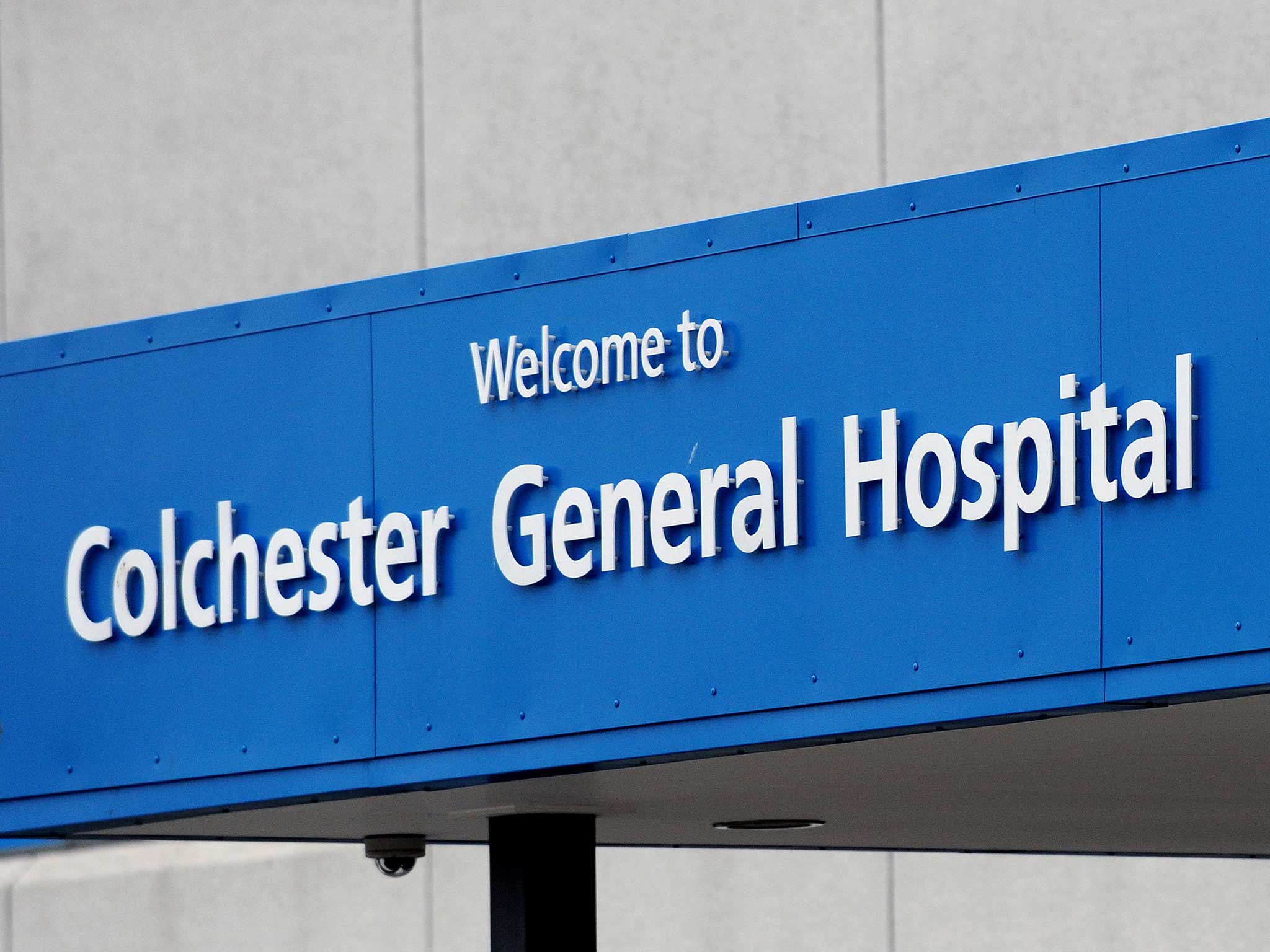Major incident declared at Colchester Hospital in Essex after a surprise A&E inspection
Patients are being advised to visit A&E only if they have a 'serious or life-threatening condition'

Your support helps us to tell the story
From reproductive rights to climate change to Big Tech, The Independent is on the ground when the story is developing. Whether it's investigating the financials of Elon Musk's pro-Trump PAC or producing our latest documentary, 'The A Word', which shines a light on the American women fighting for reproductive rights, we know how important it is to parse out the facts from the messaging.
At such a critical moment in US history, we need reporters on the ground. Your donation allows us to keep sending journalists to speak to both sides of the story.
The Independent is trusted by Americans across the entire political spectrum. And unlike many other quality news outlets, we choose not to lock Americans out of our reporting and analysis with paywalls. We believe quality journalism should be available to everyone, paid for by those who can afford it.
Your support makes all the difference.A leading accident and emergency doctor has warned the Government that it will be faced with crisis-hit hospitals across the country unless it urgently increases spending on beds and staff.
Dr Clifford Mann, president of the College of Emergency Medicine, spoke out after an unannounced CQC inspection of Colchester hospital resulted in a “major incident” being declared.
The hospital trust warned patients to stay away from A&E unless they had a “serious or life-threatening condition”, after the CQC said it had “safeguarding concerns” about the Essex hospital.
Today, experts warned that similar crises could occur at other hospitals. “I can guarantee that if [the Government] doesn’t spend money on staff and beds, then we’ll see more Colchesters up and down the country,” Dr Mann said.
The Liberal Democrat MP for Colchester, Sir Bob Russell, will meet Jeremy Hunt, the Health Secretary, tomorrow to discuss understaffing at the hospital.
The CQC inspection found hospital staff were struggling to cope with an unprecedented demand. Its inspectors also raised concerns about how patients are restrained and sedated after witnessing someone being given a sedative with no evidence in their notes to suggest consent had been given. “Do not resuscitate” notices had not been followed, inspectors found.
The hospital was placed under special measures in November last year. followed by a change in management.
“Clearly, things have gone very wrong somewhere. I am critical of the stewardship of the hospital. The new people are in and you would expect there to be a turn in fortunes. But there needs to be a serious change at the top [of the hospital]. It’s very worrying that it has gone from being held in high regard to special measures in such a short time.”
Staff had previously raised concerns about how many patients they were forced to discharge as a result of serious understaffing, but claimed that they felt ignored.
Labour’s Jamie Reed, a shadow Health minister, called on the Government to make a statement on whether Colchester was now safe for patients. He said: “Ministers have ignored repeated warnings about the chaos in A&E across England, and now whole hospitals are being overwhelmed by the pressure.”
Colchester hospital’s interim chief executive, Dr Lucy Moore, said that by “diverting resources away from things that can wait”, staff could “treat as a priority the discharge of patients”.
Peter Walsh, chief executive of Action Against Medical Accidents, said: “Serious questions have to be asked [about] why the management hadn’t already spotted the dangers and taken appropriate action. We have seen... around the country that corners can be cut when hospitals are under pressure.” The pressure on larger, specialised hospitals has been compounded since the Government allowed patients to choose where to receive their treatment.
Katherine Murphy, chief executive of the Patients Association, said: “Discharging patients to an unsafe environment isn’t the way to address the overflow if hospitals are full.”
Jeremy Hunt, the Health Secretary, has pledged £300m to pay for more beds and staff, to help alleviate the strain on A&E services this winter. “The NHS is under unprecedented demand, with a million more visits to A&E each year, compared to 2010, and 2,000 extra ambulance journeys a day,” he said. “We’ve given the NHS extra resources to make sure it is better prepared than ever before, with robust local plans in place from June which address the need to plan for year round demands.”
Join our commenting forum
Join thought-provoking conversations, follow other Independent readers and see their replies
Comments